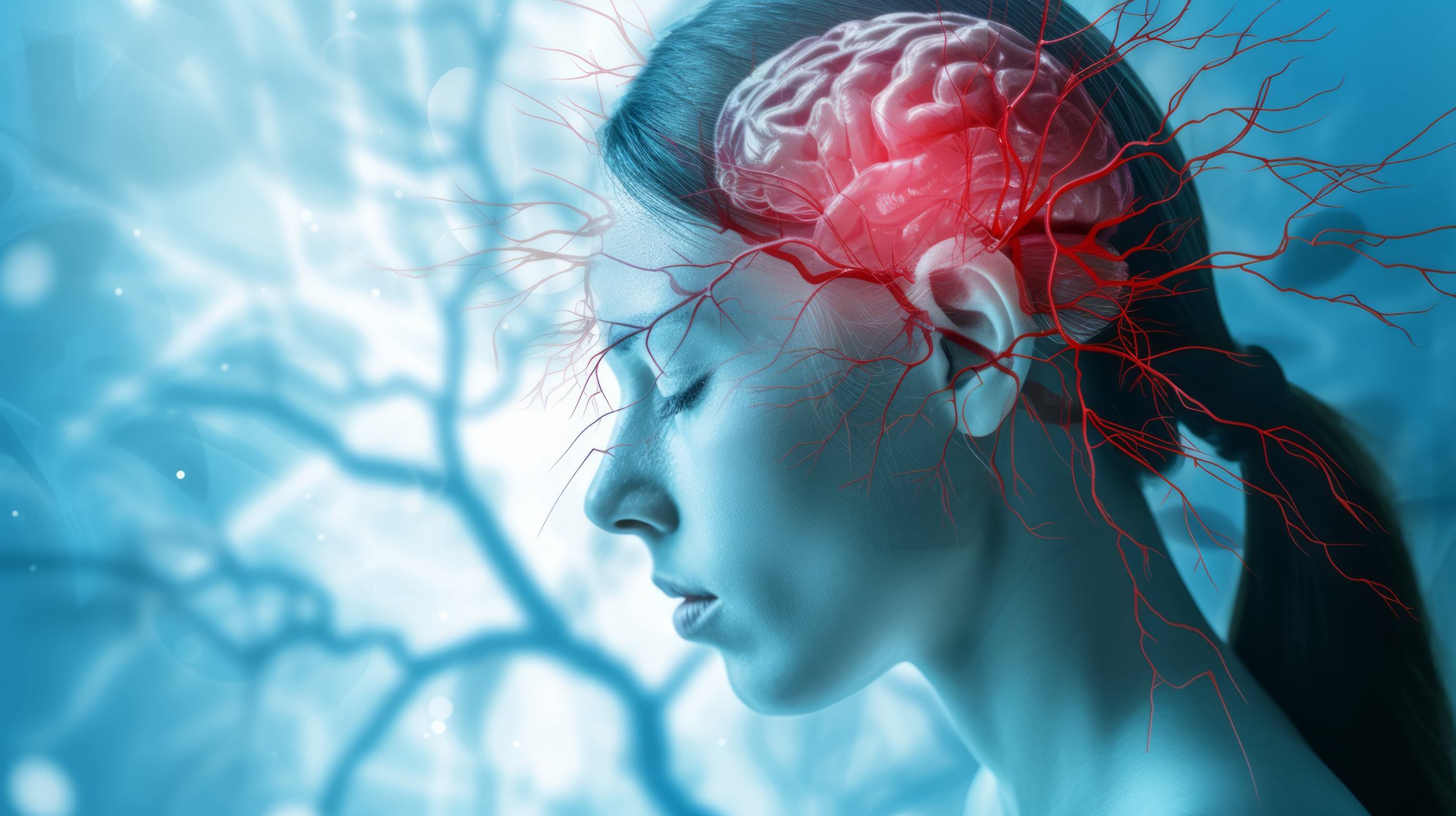Trauma Blocking: The Relationship Between Trauma and the Brain
When you experience a traumatic event, your brain’s defense mechanisms may kick in to protect you from the overwhelming emotions and memories. This protection can manifest primarily in two ways: trauma blocking and dissociation. When your brain blocks out trauma it is commonly referred to as “trauma blocking“. This is a natural response to trauma, and it helps the brain cope with the traumatic experience by creating a distance between the person and the event. Dissociation, another protective response triggered by trauma, involves a mental detachment from reality which can result in temporary memory lapses.

Trauma can affect the brain in various ways. It can alter the brain’s structure, function, and chemistry, leading to long-term changes in the nervous system. The forebrain, which is responsible for thinking and decision-making, can become overactive, while the hippocampus, which is responsible for memory and emotions, can become underactive. This can result in a range of symptoms, including anxiety, depression, and difficulty concentrating.
Unresolved trauma can also lead to a range of mental health issues, including post-traumatic stress disorder (PTSD). PTSD is a mental health condition that can develop after experiencing or witnessing a traumatic event. It can cause a range of symptoms, including flashbacks, nightmares, and hypervigilance.
Understanding the relationship between trauma and the brain is essential for effective treatment and recovery. If you or someone you know is struggling with the effects of trauma, it is essential to seek professional help.
Take the first step toward healing. Contact Sabino Recovery today to experience compassionate, trauma-informed care in a supportive environment.
How does Trauma Affect Memory?
Trauma can profoundly impact memory in several ways, influencing how memories are stored, recalled, and processed. One common response to trauma is trauma blocking, where the brain suppresses memories of the traumatic event to protect an individual from the emotional pain associated with those memories. This defense mechanism can prevent distressing memories from surfacing, but it can also interfere with the ability to recall important personal details.
Another significant effect of trauma on memory is through dissociation. This process involves a mental detachment from reality, often manifesting as temporary memory loss. It serves as an unconscious defense mechanism against emotional pain. When prolonged, dissociation can lead to conditions like dissociative amnesia, characterized by the inability to remember crucial personal information that is usually of a traumatic or stressful nature.
Furthermore, trauma can affect autobiographical memory, which is vital for recalling personal life events. Individuals experiencing trauma may find it difficult to access these memories, which can lead to broader issues of amnesia. Additionally, trauma can cause memory distortion, a phenomenon where the brain alters the recollection of events to reduce the emotional impact, potentially compromising the accuracy of those memories.
Overall, trauma can disrupt normal memory functions, leading to challenges such as blocking, dissociation, and distortion, which not only affect how memories are remembered but can also impact daily functioning and emotional well-being.
If you’re experiencing memory disruption or disconnection, our residential trauma treatment offers specialized care for emotional and neurological recovery.
Symptoms of Trauma Blocking
Trauma blocking refers to the brain’s method of “walling off” traumatic memories to help cope with distress by distancing the individual from the event. When your brain blocks out trauma, it can be difficult to identify the symptoms. However, there are some common signs that you can look for. These symptoms can vary from person to person and can be physical, emotional, or psychological.
Emotional symptoms of trauma blocking can include anxiety, depression, fear, and stress. You may experience flashbacks, nightmares, and fatigue. You may also feel irritable or have mood changes.

Physical symptoms of trauma blocking can include weakness, sensory symptoms, and memory problems. You may also experience headaches, body aches, and digestive problems.
Signs and symptoms of trauma blocking or disassociation can include avoidance behaviors, such as avoiding places or people that remind you of the trauma. You may also experience changes in your sleep patterns, appetite, and social behaviors.
If you suspect that you are experiencing trauma blocking, it is important to seek help from a mental health professional. They can help you identify the symptoms and develop a treatment plan that is tailored to your needs. With the right treatment and support, you can overcome the effects of trauma and live a fulfilling life.
Trauma and Mental Illnesses
When you experience a traumatic event, your brain may try to protect you from the overwhelming emotions and memories by blocking them out. This is a natural response to trauma and can happen to anyone. However, in some cases, the blocked memories can lead to mental illnesses such as Post-Traumatic Stress Disorder (PTSD) and dissociative disorders.
PTSD is a mental health condition that can develop after experiencing or witnessing a traumatic event. Symptoms include flashbacks, nightmares, severe anxiety, and uncontrollable thoughts about the event. If left untreated, PTSD can have a significant impact on your daily life, including your ability to function at work or school, and your relationships with others.

Dissociative disorders, on the other hand, are a group of mental illnesses that involve disruptions or breakdowns of memory, awareness, identity, or perception. Dissociative amnesia, for example, is a condition where you cannot remember important personal information, usually related to a traumatic or stressful event.
If you are struggling with the effects of trauma, it is essential to seek help from a mental health professional. Psychotherapy, such as Cognitive Behavioral Therapy (CBT), can be an effective treatment for PTSD and dissociative disorders. CBT focuses on changing negative thought patterns and behaviors, and can help you develop better coping skills, decision-making, and problem-solving abilities.
Trauma can have a significant impact on your mental health, leading to conditions such as PTSD and dissociative disorders. However, with the help of a mental health professional and effective treatment, you can learn to manage your symptoms and improve your quality of life.
How Does Therapy Help with Trauma?
Therapeutic approaches to trauma can be highly effective in helping individuals overcome the effects of traumatic experiences. Therapy can help individuals process their trauma, develop coping skills, and improve their overall well-being.
There are many different types of therapy that can be used to treat trauma. Talk therapy, cognitive behavioral therapy, and interpersonal therapy are just a few examples. These therapies can help individuals learn how to manage their emotions and thoughts, and improve their relationships with others.
Eye movement desensitization and reprocessing (EMDR) is another type of therapy that can be used to treat trauma. This therapy involves using rapid eye movements to help individuals process their traumatic experiences. EMDR has been shown to be effective in reducing symptoms of PTSD and other trauma-related disorders.
Behavioral therapy and cognitive processing therapy are also effective therapeutic approaches to trauma. Behavioral therapy focuses on changing negative behaviors and thoughts, while cognitive processing therapy helps individuals develop new ways of thinking about their trauma.
Neurofeedback Therapy is another innovative approach used to support trauma recovery. This brain-based therapy helps individuals regulate their nervous system by training the brain to recognize and shift out of dysregulated states. At Sabino Recovery, we incorporate neurofeedback as part of our trauma-informed treatment model to help stabilize mood, reduce anxiety, and improve focus—especially for those experiencing symptoms of dissociation, PTSD, or trauma-related memory disruptions. By promoting healthier brainwave patterns, neurofeedback can accelerate healing and support long-term emotional resilience.
In addition to therapy, support from friends and family can be incredibly helpful for individuals who have experienced trauma. Creating a safe and supportive environment can help individuals feel more comfortable and secure, which can aid in their healing process.
While therapy and support can be highly effective, medication may also be necessary in some cases. Antidepressants and anti-anxiety medications can help individuals manage their symptoms and improve their overall quality of life.
Come to Sabino Recovery for Private Trauma Treatment
Trauma doesn’t just live in the mind—it affects memory, relationships, and the nervous system. At Sabino Recovery, we offer comprehensive trauma treatment, including EMDR, CBT, and integrative therapies that support deep healing. If your past is still affecting your present, reach out today—you deserve to reclaim clarity, peace, and control over your life.


